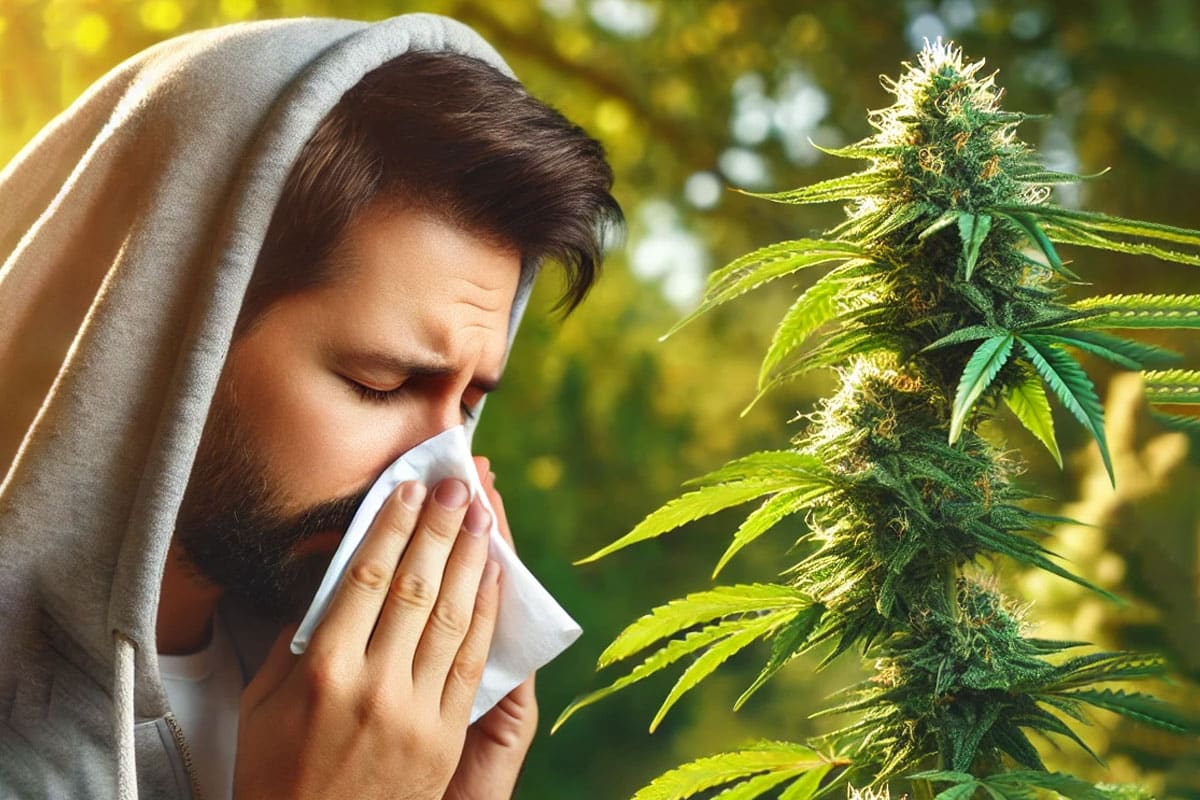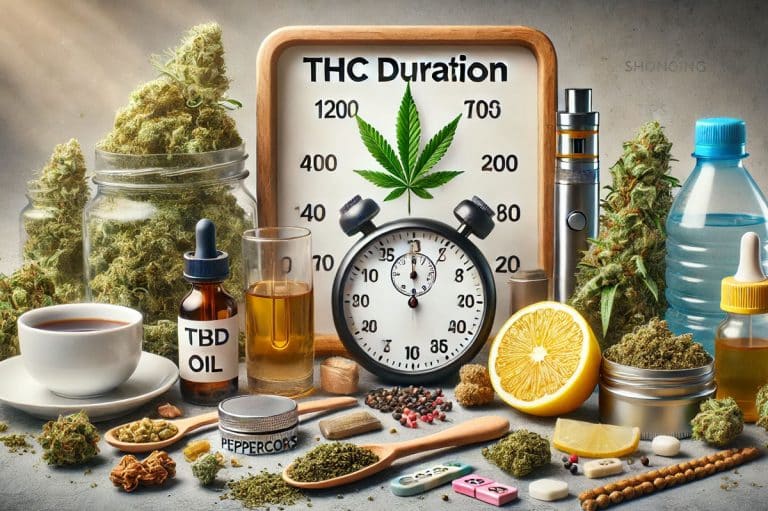Introduction
Cannabis is often celebrated for its therapeutic benefits—relieving chronic pain, reducing anxiety, easing insomnia, and supporting overall wellness. But here’s something few people realize: you can actually be allergic to marijuana.
While it might sound surprising, cannabis allergies are increasingly being recognized by doctors and researchers. Just like pollen, peanuts, or pet dander, compounds in marijuana plants can trigger allergic reactions in sensitive individuals.
In this article, we’ll break down everything you need to know about cannabis allergies, including their causes, common symptoms, treatment options, and prevention strategies. Whether you’re a patient, a recreational user, or someone working in the cannabis industry, understanding marijuana allergies is essential for your health and safety.
Can You Really Be Allergic to Marijuana?
Yes—cannabis can cause allergic reactions in some people. Allergies occur when your immune system mistakenly identifies a harmless substance as a threat, releasing histamines and causing symptoms like itching, swelling, or difficulty breathing.
Marijuana contains a wide variety of proteins, terpenes, and pollen that can act as allergens. Additionally, mold spores that sometimes grow on cannabis can trigger reactions as well.
Researchers have found that exposure can happen through touching, smoking, inhaling pollen, or even eating cannabis products. This means allergic reactions aren’t limited to just smokers—they can affect growers, budtenders, medical patients, and even casual users.
Causes of Cannabis Allergies
There isn’t just one allergen in cannabis. Instead, several factors may contribute to marijuana-related allergic reactions:
- Cannabis Pollen
- Similar to ragweed or grass pollen, cannabis pollen can cause hay fever–like symptoms.
- More common in those who grow or handle cannabis plants.
- Cannabis Proteins
- Certain proteins in the plant can trigger immune responses.
- These may cross-react with other plant-based foods (like tomatoes or peaches).
- Terpenes
- Aromatic compounds that give cannabis its smell (like limonene or pinene).
- Rare, but some people are sensitive to them.
- Mold on Cannabis
- If cannabis isn’t stored properly, mold growth can occur.
- Mold allergies are well-documented and can cause respiratory issues.
Symptoms of Marijuana Allergies
The symptoms of a cannabis allergy can vary depending on how the allergen enters the body.
Skin Contact Symptoms:
- Redness
- Itching or rash
- Hives
- Swelling
Inhalation Symptoms:
- Sneezing
- Runny or stuffy nose
- Itchy, watery eyes
- Sore throat
- Asthma-like symptoms (wheezing, coughing, shortness of breath)
Ingestion Symptoms (edibles, oils):
- Nausea
- Vomiting
- Stomach pain
- Swelling of lips or tongue
- Anaphylaxis (rare but life-threatening)
Cross-Reactivity: The Cannabis-Food Allergy Link
Interestingly, cannabis allergies sometimes overlap with food allergies. This is due to cross-reactivity, where the immune system confuses similar proteins in different substances.
If you’re allergic to cannabis, you may also react to:
- Tomatoes
- Peaches
- Bananas
- Citrus fruits
- Almonds
- Eggplant
This condition is sometimes referred to as Cannabis-Fruit/Vegetable Syndrome.
Who Is Most at Risk of Cannabis Allergies?
While anyone can develop a cannabis allergy, some groups face higher risk:
- Cannabis growers and trimmers: Constant exposure increases sensitivity.
- Medical marijuana patients: Regular, long-term use may trigger allergies.
- People with other allergies: If you’re prone to pollen or food allergies, your risk is higher.
- Those with asthma: Cannabis allergens may worsen respiratory symptoms.
How Common Are Cannabis Allergies?
Cannabis allergies are likely underreported due to the stigma and relatively recent legalization in many regions. However, studies suggest that as cannabis use increases worldwide, so too will reports of allergic reactions.
For example, a 2013 study in the Annals of Allergy, Asthma & Immunology documented cases of cannabis allergy, ranging from mild hay fever to anaphylaxis.
How to Diagnose a Marijuana Allergy
If you suspect you’re allergic to cannabis, a doctor can help confirm it through:
- Medical History – Reviewing symptoms and cannabis exposure.
- Skin Prick Test – Introducing a small amount of cannabis extract into the skin.
- Blood Tests – Measuring immune response to cannabis proteins.
⚠️ Important: Do not self-diagnose or continue using cannabis if you suspect an allergy. Severe reactions like anaphylaxis require immediate medical attention.
Treatment Options for Cannabis Allergies
Just like other allergies, cannabis allergies can be managed with a combination of avoidance, medications, and emergency care.
1. Avoidance
- Stop using cannabis or limit exposure to prevent symptoms.
- Avoid handling raw flower if skin reactions occur.
- Store cannabis properly to prevent mold growth.
2. Medications
- Antihistamines (like Benadryl or Claritin) can reduce mild symptoms.
- Inhalers may help asthma-like reactions.
- Topical creams can relieve itching and rashes.
3. Emergency Treatment
- In severe cases, an epinephrine auto-injector (EpiPen) may be necessary.
- Seek emergency medical care for symptoms like throat swelling, difficulty breathing, or anaphylaxis.
Can You Still Use Cannabis if You’re Allergic?
For some people, switching cannabis types or methods may reduce allergic reactions. For example:
- Try CBD-only products (if THC is the trigger).
- Use edibles or tinctures instead of smoking (if inhalation is the issue).
- Opt for lab-tested cannabis stored properly to avoid mold exposure.
However, for severe allergies, complete avoidance may be necessary.
Prevention Tips for Cannabis Allergies
If you’re concerned about cannabis allergies, here are steps you can take:
- Always buy lab-tested, mold-free cannabis from reputable dispensaries.
- Wear gloves and protective clothing when handling raw flower.
- Use an air purifier at home if smoking or vaping.
- Keep cannabis stored in airtight containers in a cool, dry place.
- Try microdosing to see if smaller amounts reduce allergic responses.
When to See a Doctor
Seek medical help if you experience:
- Persistent respiratory issues after cannabis use.
- Skin rashes that don’t improve.
- Severe swelling, hives, or throat tightness.
- Any signs of anaphylaxis.
Don’t ignore these symptoms—cannabis allergies can be dangerous if left untreated.
Final Thoughts
Yes, you can be allergic to marijuana—and for some people, the reactions can be serious. While cannabis offers incredible therapeutic benefits, it’s not risk-free.
If you suspect an allergy, talk to your doctor, get tested, and explore safer alternatives. In some cases, you may still be able to enjoy cannabis through careful product choices and dosing. In others, avoidance may be the best path to protect your health.
The bottom line? Listen to your body, respect your limits, and always prioritize your safety.








